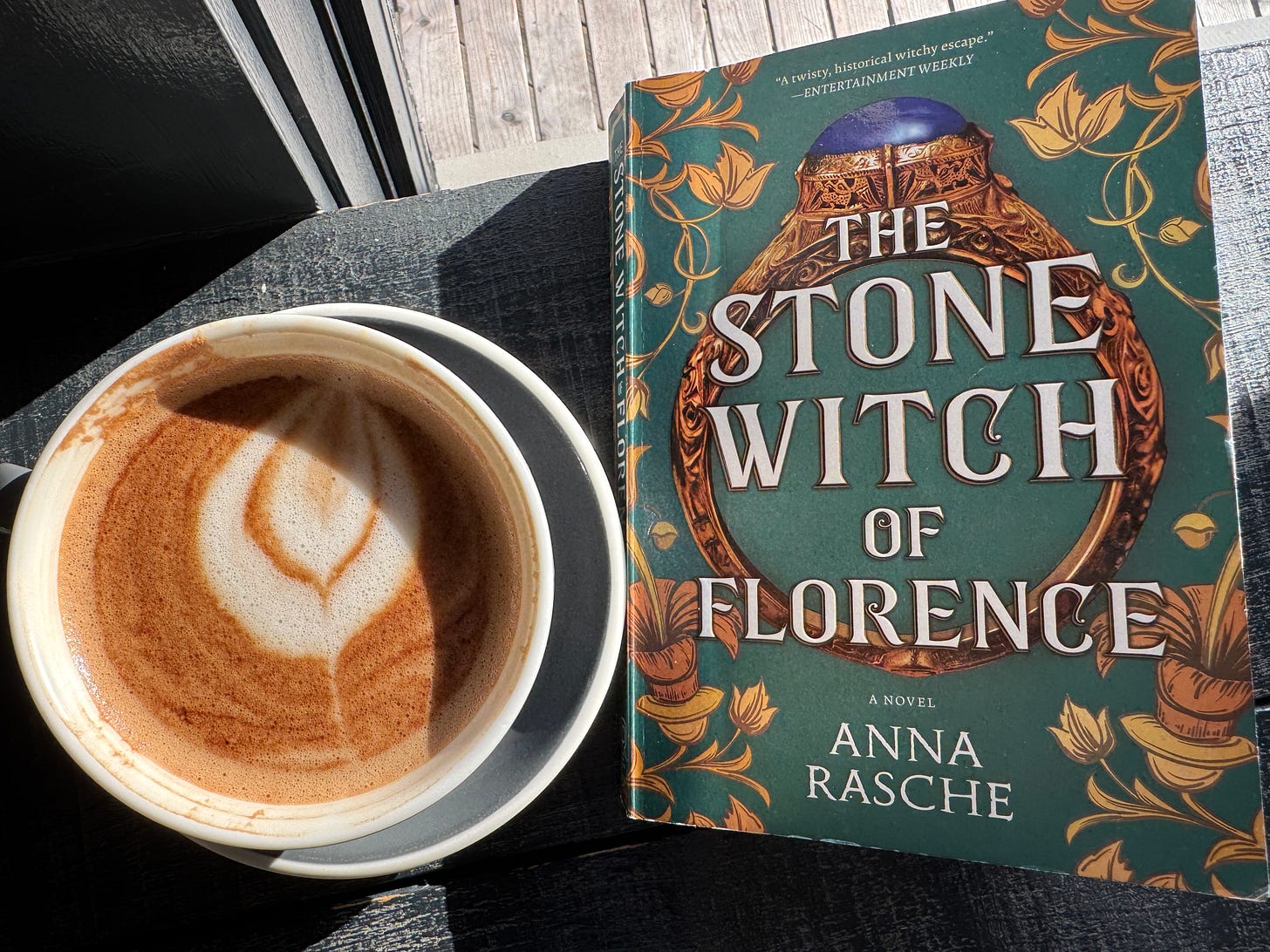THE STONE WITCH OF FLORENCE by Anna Rasche
A different look at witchcraft, this time in Italy
Continuing with my witch-inspired reading of recent months is The Stone Witch of Florence by Anna Rasche. Rasche is a historian and gemologist, which inspired her story of Ginevra, a woman in 14th century Italy who returns to Florence after banishment, to assist in the investigation of several relics from Catholic churches in the Florence area.
What I liked about this is the location. Italy hasn’t been the setting for any of the witch stories I have read, so I was interested to see how that influenced the story. I wondered if the strong Catholicism of Italy would feature in the story and it did, which brings a fascinating clashing of cultures - withcraft and the old orders of Roman Catholic belief. I think they are perhaps not as different as many would like to believe, but of course at the heart of it is the murder of witches (predominantly women) by those of faith, out of fear mainly. And let’s name that fear: they were afraid of losing their grip on power and the riches that came with that power.
What I also liked was the heavy leaning into stones and gems as a part of witchcraft, which issomething we continue to see modern witches utilise. Whether I believe in the power of stones and gems is not the point; I find it fascinating to read about and consider. If there are people who take comfort in their use, that’s great for them!
One of the things I enjoyed about The Stone Witch of Florence was the friendship between Ginevra and Lucia. It is not all smooth sailing and I liked that there was no pretence that women who are friends do not argue or have frustrations with one another. Of course we do, yet many of us remain dear friends and reliable ones.
The downside of this book was what I considered the predicatability of the storyline itself. It seemed clear fairly early into Ginevra’s investigation what was occuring and why. I also guessed reasonably early who the “villian” was, and not too far further in, the story almost explicitly tells us. When the reveal finally comes upon the reader, it’s such a let down - I’d really hoped there would be a twist, but it didn’t come. There were other elements of the story, too, which seemed to simply be included for the sake of it and which did not add anything to the finality of the story.
The writing itself is good and I liked the protaganist. Ginevra is a compelling woman and her desperation to solve the case of the missing relics is understsandable. The characters are well developed. But the story itself lacked punch and that made the finishing of The Stone Witch of Florence a little bit of a let down, despite the promise.
None of this is to say this is not a good novel - if witch stories are your jam, then this one is a good read that you’ll enjoy, even if it doesn’t land on your list of all time favourites.




